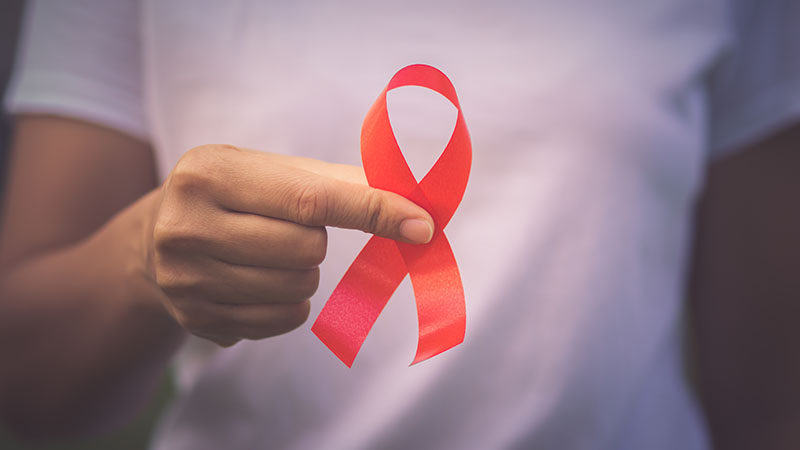Alcohol Awareness Month is dedicated to increasing public knowledge about the dangers of alcohol and the effects and causes of alcohol use disorder.
How We Can Help
Lunch & Learn - Alcohol Awareness
Join us Thursday, April 25, 2024 from noon to 1 p.m. at The Grand Church for a complimentary lunch to learn more about alcohol awareness.
How to Support Alcohol Awareness Month
Your local community might have events planned for Alcohol Awareness Month. Even if there aren’t local events, there are several ways you can participate in raising awareness.
Here’s how you can support Alcohol Awareness Month:

Wear a Red Ribbon
Make a red ribbon pin or find one online to show your support for Alcohol Awareness Month.
Participate in an Alcohol-Free 72 Hours
The NCADD encourages everyone to make the first weekend in April an alcohol-free one. The organization suggests doing this with friends and family so you can support each other. If the weekend is difficult for you or a loved one, it can be a sign to seek professional treatment.


Host Dry Parties
You can host alcohol-free, or “dry,” parties in April to support Alcohol Awareness Month. Check out our list of nonalcoholic drinks and mixers.
Talk with Kids & Teens about Alcohol
Talking about alcohol can help prevent underage drinking, and Alcohol Awareness Month is a great time to get the conversation started. The Substance Abuse and Mental Health Services Administration (SAMHSA) has resources on its website to help you have conversations with kids as young as age 9, high schoolers, and teens heading off to college about the risks of alcohol.


Talk with Family & Friends about Alcohol
Starting a conversation about alcohol misuse with a loved one can be tough, but it can also be lifesaving. If you’ve been concerned about a loved one’s drinking, Alcohol Awareness Month is a good time to check in with them. You can find resources for talking with friends about their drinking in this article.
Look at Your Own Relationship with Alcohol
Make time for some self-reflection, too. Alcohol Awareness Month can be a great time to monitor and track how much alcohol you drink, which can allow you to spot potential overuse.

How to Stop Drinking: Making a Plan That Works for You
1. Examine Alcohol Health Effects
Alcohol can affect your health in many ways. Even drinking moderately can leave you feeling groggy, foggy, or hungover. The more you drink, the more likely you notice other health effects, too, like:
- Disrupted sleep
- Digestive issues
- Memory problems
- Increased anxiety, depression, and irritability
- Disagreements and other conflict with loved ones
2. Take Some Time to Explore Your Relationship with Alcohol
A key first step in giving up anything is identifying why you’re doing it.
Figure out how much you actually drink
Maybe you don’t think you depend on alcohol exactly, but you still wonder whether you might be drinking too much. Say you don’t have any cravings when you go without drinking. All the same, “a quick drink” often turns into three or four drinks. When you’re having a good time, you find it hard to stop, especially in the company of friends having the same amount.
Identifying triggers
Knowing why you drink is essential, says Cyndi Turner, LCSW, LSATP, MAC, a Virginia therapist specializing in addiction treatment and alcohol moderation.
She explains that knowing why you drink alcohol can help you explore alternative ways to address those issues more productively. Common alcohol triggers include:
- Relationship stress
- Social events
- Trouble at work
- Insomnia
3. Consider Your Approach
You might know you want to give up alcohol entirely. But maybe you’re unsure about quitting completely and don’t want to hold yourself to that goal.
What’s most important is looking at your drinking habits and finding a way to cut back that works for you. It’s possible to develop a better relationship with alcohol and make more mindful, informed choices about drinking without total sobriety.
4. Talk About It
Letting others know about your choice to stop drinking may help motivate you to stick with your decision.
Family and friends can provide encouragement and support when you stop drinking. By opening up about your relationship with alcohol, you might also encourage others to explore their own drinking habits.
Turner notes the importance of bringing along a trusted support person when attending events that involve alcohol.
It’s often easier to turn down a drink when you don’t have to do it alone.
Finding or reaching out to other sober people can also help.
Know what to say
When you turn down a drink, people might ask why. You’re not obligated to offer details, but it can help to have a go-to response ready:
- “I’m cutting back for my health.”
- “I don’t like the way drinking makes me feel.”
That said, you don’t need to say anything more than “No, thanks.” Practicing your refusal ahead of time can help you feel more comfortable and confident when you find yourself in a situation that involves alcohol.
5. Change Your Environment
Research shows that most people believe that drinking can make them feel better. However, when alcohol makes up part of your typical routine, drinking can become something of an automatic response, especially when you feel stressed or overwhelmed.
You may not need to completely reinvent your life to quit drinking, but making a few changes in your surroundings to help avoid alcohol triggers can make a big difference.
- Remove Alcohol: Alcohol in your house can tempt you when you’re trying to quit. If you feel like having a drink, knowing you’ll have to go out and make a purchase can deter you long enough to find a good distraction.
- Find a Go-To Drink: Choosing the right replacement beverage can help you stand firm in your desire to stop drinking. Water, flavored sodas, teas, and other beverages can all help replace alcohol.
- Keep Busy: When you tend to drink at a certain time of day, doing something else is one of the best ways to distract you from old habits to help break that pattern. Activities that get you out of the house and moving often help most.
When your desire to drink aligns more with your mood than any particular time of day, having a few alternative coping methods ready can help:
- Instead of taking a drink to calm anxiety, try affirmations, deep breathing, or meditation.
- Comfort yourself when feeling lonely by reaching out to a loved one or watching a favorite movie.
6. Prepare for Potential Alcohol Detox
People who are more dependent on alcohol may start to experience what’s known as alcohol detox when they significantly cut back on or stop drinking. This happens as your body begins to remove alcohol from your system. Detox can bring on alcohol withdrawal symptomsTrusted Source such as:
- anxiety
- headache
- fatigue
- insomnia
- mood changes
- shakes
- sweating
Talk with a healthcare professional if you’re concerned you may experience detox symptoms when quitting drinking or cutting back. Together, you can come up with a plan to get through it.
7. Make Time for Self-Care
Quitting drinking can be stressful. If you turn to alcohol to manage emotional distress, the added overwhelm can prompt the urge to drink, making success seem even more out of reach.
It’s common to have a difficult time when making big changes, but good self-care practices can help you manage overwhelming feelings and take care of your mind and body.
Prioritize Wellness
Feeling at your best physically can boost resilience and emotional strength, equipping you to weather challenges that trigger the desire to drink.
By avoiding alcohol, you’re taking a big step toward improving physical health. As you begin to notice those health benefits, you’ll likely feel more energized and inspired to keep up your progress.
Other tips to consider:
- Stay hydrated.
- Eat regular, balanced meals. Try to include foods that increase energy and boost mood.
- Get regular physical activity, if you’re able. Try hiking, cycling, dancing, or roller-skating for enjoyable ways to stay active.
- Make better sleep a priority. A good goal for most adults is 7 to 9 hours.
Rediscover Hobbies
Many people use alcohol to cope with boredom. Satisfying hobbies can distract you from wanting to drink, but they also help you relax — something everyone needs to do.
Keep a Journal
Maybe you’ve never been interested in logging your innermost thoughts, but journaling can be a great tool to track your feelings as you work on quitting alcohol.
Exploring, in writing, what you find difficult and when you most want to drink can help you notice patterns that offer more insight into your alcohol use. Comparing the emotions that come up when you have a drink with the feelings you experience when abstaining also helps you recognize when drinking doesn’t fix the problems you’re trying to manage.
8. Know Your Why
You might run into obstacles along the way that tempt you to drink. Keep in mind the reasons you chose to cut back on or quit alcohol.
Consider writing them down and keeping notes on hand, so you have a physical reminder to look at when you need it to help motivate you to stay the course.
9. Reach Out for Support
Quitting alcohol alone is harder for some than others, but there’s no need to go it alone.
If you’re having difficulty sticking to your goal or just want some extra guidance, consider reaching out for professional support.
If you feel comfortable doing so, discuss your challenges with your primary healthcare professional. Finding a therapist can also be a great starting point if you’re uncomfortable opening up to your healthcare professional.
Start Your Journey on the Path to Recovery
New Vision at Allen Parish Community Healthcare is an inpatient medical stabilization and withdrawal management service for adults with drug, alcohol or related health issues. Call for a FREE confidential assessment with one of our healthcare professionals.
How We Can Help
